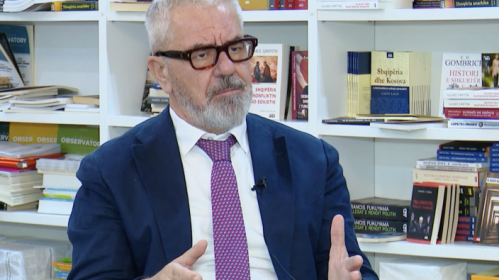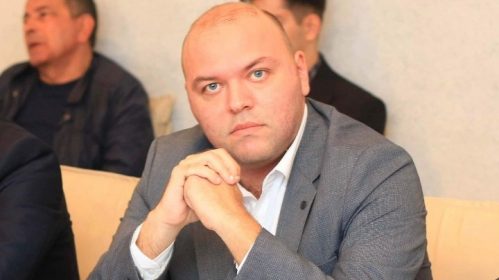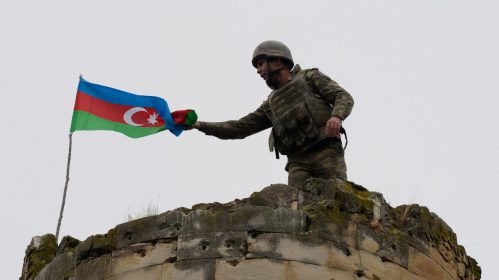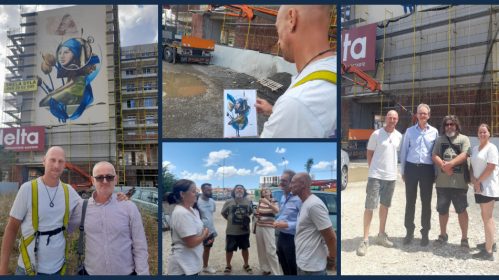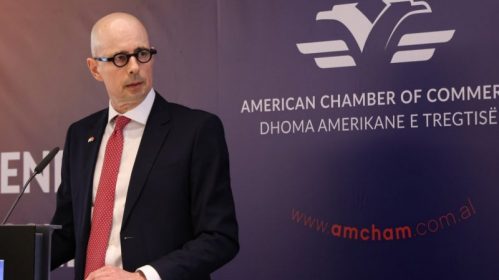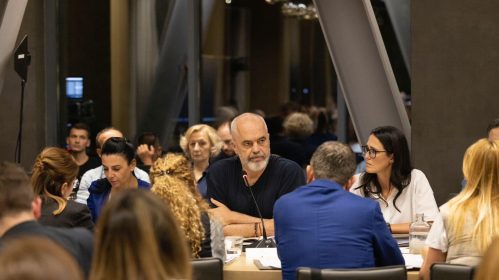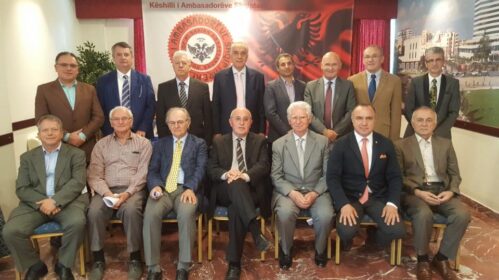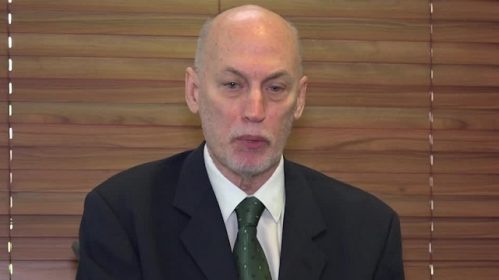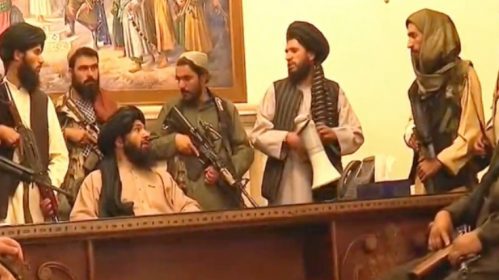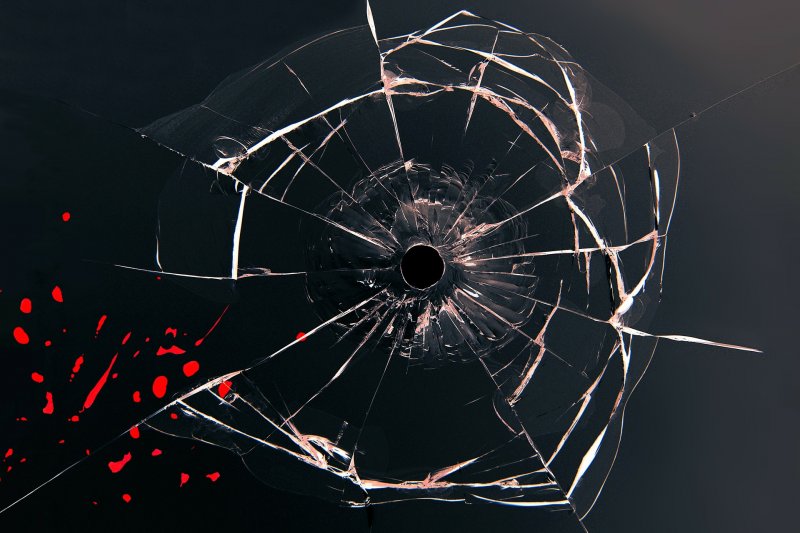
Le Monde: In the Balkans, Gangs at the Heart of State System
Since the fall of communism and the wars in the former Yugoslavia, the Balkan mafias have grown so much that they are now considered a major player in international organized crime.

By Rémy Ourdan
Since the fall of communism and the wars in the former Yugoslavia, the Balkan mafias have grown so much that they are now considered a major player in international organized crime. Serbian, Montenegrin and Albanian gangs, which began to thrive three decades ago from arms and cigarette trafficking, are now at the heart of the arrival of South American cocaine in Europe.
They also traffic heroin and produce marijuana and synthetic drugs. Their profits are such that they have invested in large parts of the legal economy.
SERIAL „Geopolitics of Mafias“ (3/6). Serbian and Montenegrin groups have got their hands on drug trafficking from South America, becoming key players in organized crime in Europe. A rise in power was achieved concerning the government, before the outbreak of a murderous war of clans.
The reasons for the outburst of violence in recent years between gangsters from Serbia and Montenegro sometimes remain mysterious. Shootings in cafes, car explosions, corpses found in the streets of Belgrade, Kotor or Podgorica, not to mention an unknown number of missing persons: seven years of gang wars, assassinations and revenge have left at least fifty dead.
The main triggers are known, however, and both occurred in 2014. On the one hand, the disappearance of at least 200 kilos of cocaine in the Spanish port of Valencia began to divide the cartel led by Darko Saric and marked the outbreak of the „Kotor War“ between two rival gangs, the Skaljari clan and the Kavac clan. On the other hand, the arrest of Saric himself has caused a war of succession between his most faithful men – who run his empire while he is in prison – and ambitious people dreaming of more autonomy and the profits that accompany it.
The gang war took on further momentum two years later, in 2016, after the assassination of Aleksandar Stankovic, known as „Sale Mutavi“ (Sale the Mute) the leader of the Janjicari („Janissaries“) gang, formed by the fiercest supporters (ultras) of the Belgrade football club Partizan. Traditionally, in Serbia, groups of ultras are a breeding ground for the underworld, as they were for paramilitary militias during the wars of the 1990s.
The icon of this parallel world was, during the reign of president and warlord Slobodan Milosevic (1989-2000), Zeljko Raznatovic, known as „Arkan“, leader of the supporters of the Red Star, the other football club in Belgrade, the then Arkan Tigers, a paramilitary group that worked on the orders of the Serbian secret police. Arkan, indicted like Milosevic for crimes against humanity by international justice, was murdered at the Intercontinental Hotel in Belgrade, shortly before the fall of the Serbian President, by a killer who, like him, had a mafioso gun in one hand and a police badge in the other.
If the criminals of Albania initially derive their influence from the links forged with the Italian Mafias, those of Serbia and Montenegro initially have an original “asset”, which can only be found at this level in Russia: their close link with the State. Built in the time of communism by the Yugoslav secret police, reinforced at the time of the wars by Milosevic’s secret services, this link remains extremely strong. Experts even wonder whether Serbia and Montenegro can be described as „mafia states“ and, given the financial power acquired by the world of organized crime, whether it is still gangsters who are in the service of the state, or whether it is now these two states who are in the service of the gangsters.
In Serbia, three different periods can be observed. „Milosevic was the godfather of criminals and paramilitaries. Then, in 2000, [Prime Minister Zoran] Djindjic tried to start fixing the problem, so they murdered him [in 2003],“ said Vuk Cvijic, an investigative journalist with Nin magazine. During the reign of the Democratic Party, between 2000 and 2012, „while there was still corruption, there was no longer a direct link between the Serbian government and organized crime“, the journalist believes. Two major police operations took place at that time, in cooperation with Interpol and foreign police services: Operation Sabre, against the Zemun clan and the Djindjic assassins (2003), and Operation Balkan Warrior, against the Darko Saric cartel (2009).
„Today, under [President Aleksandar] Vucic, the state and the mafia are cooperating again to such an extent that there is no longer a clear difference between the two,“ says Vuk Cvijic. One might even wonder whether the mafia has not become stronger than the state.”
In Montenegro, the story is different because the same man, Milo Djukanovic, has been in power since the fall of communism in 1991. „Djukanovic is the boss. All Montenegrin clans have the same employer: the president of the country, allege Jovo Martinovic, a famous journalist who has been investigating organized crime for twenty years. The difference with Latin America is that Pablo Escobar was a gangster acting against the state. In Montenegro, Pablo is president… »
The close relationship between the political powers and organized crime is obviously difficult to prove since, even if some investigations sometimes go back to a minister or a businessman, „the organic link historically passes through the secret services“, notes a European diplomat who has long known the intricacies of the Serbian and Montenegrin powers. „The traffic is orchestrated by the governments of Serbia and Montenegro. Many criminals have secret service or police badges. The two presidents work together and have common interests,“ says Jovo Martinovic.
Experts also point to the role, alongside each president, of their respective brothers, who run family affairs. Andrej Vucic, in Belgrade, and Aco Djukanovic, in Podgorica, thus play a pivotal role on the intersection between politics, business and dirty money. „Drugs are one thing,“ says the diplomat. But Djukanovic has undoubtedly built his fortune even more on privatization than on traffic. His brother Aco is a billionaire.“
„No one on the international stage knows how to deal with the issue of organized crime in Serbia and Montenegro,“ says Stevan Dojcinovic, an investigator with the Serbian investigative website Krik, „because no one understands the heart of the problem: it is not a problem of corruption of individuals, it is a state system. This was already the case in Milosevic’s time, and it continues with Vucic and Djukanovic. It is a state operation that is difficult to prove. »
The Italian judiciary, which has tried on several occasions to elucidate the relationship between politicians and criminals in the Balkans, particularly with Milo Djukanovic in cases concerning its own Mafias, has broken its teeth there. Other European judiciaries have never gone beyond the notorious traffickers. Those who have long been investigating organized crime in the former Yugoslavia also believe that, since these cases involve state secret services, other intelligence services, American and European, protect them in exchange for information, or even through political deals.
A Chaotic Galaxy
„The West is trying to bring Serbia to Europe, while Aleksandar Vucic has close relations with Moscow and cordial relations with Beijing. And Milo Djukanovic is historically and sincerely the most pro-Western, pro-European Union and pro-NATO leader in the region, analyzes a European diplomat. In the name of geopolitics, we turn a blind eye to the illicit activities of these otherwise fragile states.”
Beyond the very opaque issue of the involvement of the secret services in criminal cases, understanding the intricacies of gangs is not an easy task for investigators. „Balkan organized crime has never had an Italian-like Mafia, with a capo di tutti capi. There are independent cells, which evolve quickly, within groups that themselves divide and recompose. There are about 300 criminal groups in the Balkans,“ says Stevan Dojcinovic. „There is no Balkan cartel, it is a cooperation between gangs, whose main task is the transport of cocaine from Latin America to Europe,“ confirms Sasa Djordjevic, from the Belgrade office of the Global Initiative Against Transnational Organized Crime, an independent organization based in Geneva.
In Serbia, after the assassination of Prime Minister Zoran Djindjic and Operation Sabre, the Serbian trafficker of Montenegrin origin Darko Saric has established himself as the only one to succeed in somewhat unifying this chaotic galaxy. Saric was considered the most powerful drug lord these countries had known in thirty years. In prison since 2014, he was sentenced to fifteen years for drug trafficking in 2018, then to nine years for money laundering in 2020, these sentences still being subject to cancellation or appeal proceedings. Meanwhile, on the Adriatic coast, the patriarch of Montenegrin traffickers, Branislav Micunovic, has established himself as a powerful coordinator between the clans that watch over the arrival of cocaine. He ages peacefully in Budva, residing on the top floor of his hotel-casino, the Splendid.
The reign of Darko Saric was a blessed time for criminals, despite the hostility of the Belgrade government of the time. „Some Balkan groups have risen through the ranks for two decades, from small thugs and courier to become major drug dealers,“ notes Global Initiative Against Transnational Organized Crime, in its report „Transnational Tentacles“ in 2020. Balkan groups have become key players in organized crime in Europe, Turkey, Latin America, and as far as in South Africa and Australia. For South American cocaine, they operate mainly from Colombia and Ecuador, as well as Uruguay, Peru and Brazil. For the arrival of drugs, they are present on the Spanish, Italian, Greek, Albanian and Montenegrin coasts.
A video illustrates this relatively peaceful time before a gang war shattered the fragile balance between criminal organizations. The wedding video of Safet Kalic, a Montenegrin gang leader from Rozaje, shows all the Balkan criminal leaders, including Darko Saric, kissing and feasting. The video, posted on the Internet in 2010, caused a scandal because it also shows the presence at the party of Zoran Lazovic, then assigned by President Djukanovic with the fight against crime within the secret services, and of Ljubisa Mijatovic, who will become its head of security. The President defended himself by claiming that they were on a mission to spy on the thugs, without convincing anyone though.
Politics, Football and Underworld
After the Valencia affair and the arrest, under American pressure, of Darko Saric, who had become too powerful, the balance was upset and the „Kotor War“ broke out. It opposes the clans of Skaljari and Kavac, named after two villages in the vicinity of the Montenegrin seaside resort. Kotor has carved out a special place for itself in the world of drug trafficking by relying on its maritime culture. A young sailor from the surrounding area has little choice but to become a trafficker.
In addition to a conflict between gangsters for drug money, the experts’ hypothesis is that the Skaljari clan rose too quickly after the arrest of Darko Saric and began to dream of a certain autonomy vis-à-vis the Serbian and Montenegrin secret services. Belgrade and Podgorica then favored the Kavac clan, born from a split within the Skaljari clan. Kavac’s men are notoriously close to both hooligan groups linked to Vucic’s networks in Serbia and with the secret police in Djukanovic, in Montenegro.
On the Belgrade side, it is clear that the police have mainly targeted the Skaljari clan. Its then leader, Jovan Vukotic, was arrested in Turkey in 2018 at the request of Serbia, extradited to Belgrade and tried for an trivial reason (using a false passport). Members of the Skaljari clan hunted down in Serbia have taken refuge all over Europe, and some have been tracked down and murdered in Spain, Germany, Austria, the Netherlands and Greece.
While no one knows who murdered Aleksandar Stankovic, the leader of the Janjicari, reputedly close to the Kavac clan, the disappearance of “Sale the Mute” has also led to a recomposition within the Belgrad criminal world. The eyes obviously turned to the powerful Luka Bojovic, at the time head of the Zemun clan and close to the Skaljari clan. Since then, Stankovic has been replaced by Veljko Belivuk, known as „Velja Nevolja“ („Velja the Problem“), and Bojovic, imprisoned in Spain, has entrusted the leadership of the gang to Filip Korac, the man who has been climbing into the Serbian underworld in recent years.
If the participation of the Serbian government in this gang war is difficult to prove in court, the Janjicari, renamed the „Principi“ (named after Gavrilo Princip, the Serbian assassin of the Austro-Hungarian Archduke Franz Ferdinand in 1914 in Sarajevo) by Belivuk, have gained power since the arrival in power of Aleksandar Vucic in 2012. Janjicari were hired as security at Vucic’s inauguration ceremony, and his son Danilo regularly appeared in public with gang members.
A connection between the state and the Principi was established, according to journalistic investigations, by Dijana Hrkalovic, a former secret police officer promoted by Aleksandar Vucic as Secretary of State at the Interior Ministry, until her resignation in 2019. Hrkalovic was a close friend of both the leader of the Janjicari and a senior officer of the gendarmerie, Nenad Vuckovic, known as „Vucko“ („the Wolf“), a member of the Partizan supporters’ club and a close friend of the gang’s successive leaders, Sale the Mute and „Velja the Problem“. Hrkalovic, who describes President Vucic as „a man who surpasses us all by his genius,“ has resigned and has been quiet since the revelation of embarrassing stories.
One such case is the discovery, on the organic farm in Jovanjica, Vojvodina, of a twelve-hectare field where 65,000 marijuana plants that were hidden behind crops of tomatoes, cucumbers and onions, a laboratory and 600 kilograms of drugs, as well as weapons and high-tech surveillance equipment. The owner of the farm, who was regularly visited by government officials, had a fake police badge and police license plates provided by officers working for Dijana Hrkalovic.
Another case was the revelation that „the Wolf“ was discreetly using a police shooting club to train with the leaders of the Janjicari, Stankovic and Belivuk, as well as Novak Nedic, the secretary general of the Vucic government.
Serbian President Aleksandar Vucic knows well this world that evolves between politics, football and the underworld. As a young man, he was a supporter of the Red Star in Arkan times. Engaged in politics alongside Vojislav Seselj, the leader of the Serbian far right and a paramilitary militia similar to that of Arkan, Vucic was a minister under Milosevic. Today, he seems to be using the ultras of Partizan, the club being traditionally close to the secret police because it belongs to the state.
However, two developments have taken place this year in the Serbo-Montenegrin criminal world. In Belgrade, the police arrested Veljko Belivuk and about twenty Janjicari in February, to everyone’s surprise. The justice accuses „Velja the Problem“ of murder, kidnapping, extortion and drug trafficking. Since his arrest, media close to the government have been relaying the testimonies of the families of disappeared victims of the gang. „It is not yet known why the state decided to put an end to this criminal group after years of protection,“ comments Stevan Dojcinovic. In addition to the discovery of a place of execution in a house in Ritopek, on the outskirts of Belgrade, one hypothesis is, according to one expert, that „Belivuk’s group, which was in the service of the State, went too far in racketeering of businessmen close to the government“.
The deadly potion of „Doctor Death“
In Montenegro, Slobodan Kascelan, the head of the Kavac clan, was arrested in April. There, the reversal of the situation has a rational explanation: president Djukanovic’s party having lost the 2020 legislative elections, the dinosaur of Montenegrin politics finds himself, even if it retains an influence on the secret services and the judiciary, in a situation of cohabitation with a government that is hostile to him. „The state no longer controls organized crime. Djukanovic no longer has full powers,“ said Vanja Calovic Markovic, the Director of the National Council against Corruption.
Kascelan was arrested on the orders of Dritan Abazovic, the Deputy Prime Minister who coordinates the security services. The young and courageous Abazovic revealed that, in the wake of the change of government, Kavac’s clan offered him, through relatives of the patriarch of traffickers, Branislav Micunovic, to meet him. Following his refusal, he received a message: „We’ll see each other, one way or another…”
Soon after, an assassination attempt was foiled through telephone tapping that revealed a plan to use a sniper, as in the case of Zoran Djindjic in Belgrade almost two decades ago. Dritan Abazovic said he was „willing to pay any price to defeat organized crime.“ In particular, he dismissed Zoran Lazovic, the director of the police’s department for combating organized crime, the man who appeared on the video of Kalics’ wedding, which has long been considered, according to a source close to the government, to be „the link between the state and organized crime“ in Montenegro.
The relationships between the men of power and the underworld sometimes take a very strange turn. An old story still makes Belgrade howl with laughter – or cry with rage, depending on the interlocutor. Twenty years ago, a small thug, Veselin Bozovic, was targeted by a burst of Kalashnikov in a street in the Serbian capital. He was still alive when he arrived at the hospital, as the shooter’s bullets had not reached any vital organs. His wife, son and two bystanders, also hit by the bullets, also survived their injuries. A miracle.
This was without counting on Dr. Zlatibor Loncar, who was off duty that day but suddenly arrived at the hospital emergency room. An hour later, Bozovic was dead. The police investigation proved that Doctor Loncar had injected him with a deadly content. „He told us: „I’m going to finish him…“ “ testified a repentant criminal. Ten days later, the doctor received an apartment in consideration for his services. He denied the charges and was never prosecuted due to lack of evidence, according to the police.
Doctor Loncar was actually working for the Zemun clan, at the time the most powerful gang in Serbia. Then the man whom the Serbian tabloids nicknamed „Doctor Death“ became a loyal follower of President Aleksandar Vucic. Today, he is the Minister of Health.
Rémy Ourdan (Belgrade (Serbia), Podgorica, Budva and Kotor (Montenegro), Special Envoy)





